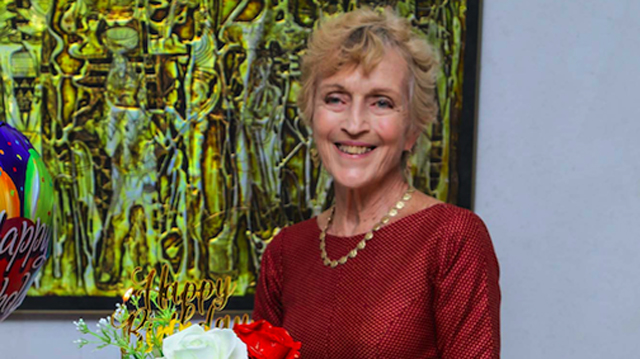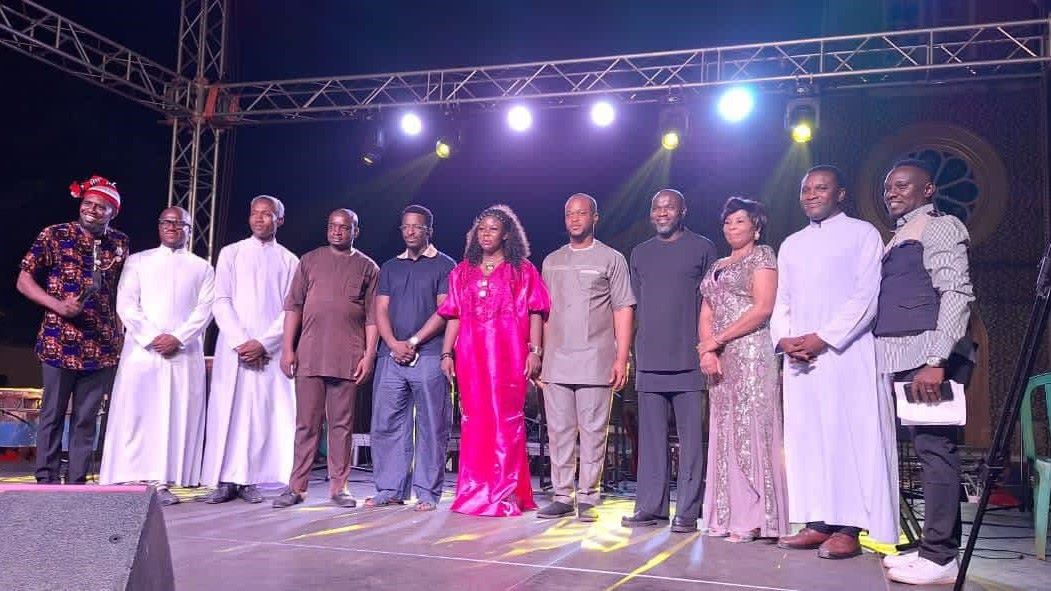Three weeks ago, July 24, 2021, precisely, Miriam Jean (Forbes) Isoun, wife of Prof. Turner T. Isoun, former Minister of Science and Technology, celebrated her 80th birthday, thus joining the prestigious Octogenarian Club.

In 1965, a year after they married while students at Michigan State University, Turner and Miriam took the Pan American flight to Lagos (where they were met on arrival by the indefatigable Horatio Agedah (of NTA), who took them to a reception by Turner’s family in Surulere, and then put them on the Nigerian Airways flight to Enugu; they then drove to Nsukka where they joined the faculty of the new and first indigenous University of Nigeria, Nsukka.
The innovative, problem-solving educational objectives of the University were directed toward the development needs of the newly independent Nigeria and were bubbling with activity and enthusiasm.
The university had attracted enthusiastic pan-Nigerian academics (and their many academic and professional wives), including Profs Babs Fafunwa, Sam Aluko, Awele Maduemezia, Ken Saro-Wiwa, Obi Wali, Sunday Ette, Herbert Nwagha, Mba Uzoukwu and Chukwuemeka Vincent Ike.
Visiting MSU staff included George Axinn, Lloyd Ferguson and Charles Titkemeyer. Miriam (B.Sc, M.Sc. M.S.U.) joined the Faculty of Veterinary Medicine as a Lecturer of Histology and Embryology.
In 1967, the Civil war began and Miriam recalls the placement of public signboards warning that ‘all strangers must leave’, which sadly scattered the diverse scholars back to other universities and countries.
Miriam and Turner went by sea and road from Warri to Lagos and then to the University of Ibadan (UI), where Miriam worked in ‘Sigi Osunkoya’s Burkitt Tumour research laboratory at the University College Hospital (UCH), where she watched the war-wounded arrive by helicopter outside her window.
She later took an appointment as a lecturer in the Dept of Veterinary Anatomy where she had a busy teaching schedule and started a research programme using modern molecular biology tools to investigate the metabolism of Animal Trypanosomiasis (T. vivax).
This research later became the basis for which she was awarded a PhD from the University of Ibadan and which was published in the journal, ‘Nature’ and other peer-reviewed international journals.
Professional colleagues at UI’s Faculty of Veterinary Medicine included Professors Basil Ikede, Joseph Akpokodje, Tom Aire, and Sotonye Amakiri; their students included Wole Tomori, Victor Anosa, and Timothy Obi.
On a brief return to MSU, while her husband completed a post-DVM PhD in Veterinary Nutritional Pathology, Miriam worked in the United States Atomic Energy Commission Laboratory with Prof. James Trosko on DNA repair mechanisms in human cells in vitro, which had exciting subsequent outcomes for human genetics and led years later to a Nobel Prize for succeeding scientists.
While Turner added academic administration to his research and teaching in Veterinary Pathology, Miriam continued to teach histology and embryology to many years of DVM students, who subsequently became top academics, powerful entrepreneurs (e.g. the recently deceased Dr. Olatunde Agbato) and renowned in other walks of life.
The opportunity given to Turner to move to Port Harcourt to be the Special Advisor on Science and Technology to Governor Melford Okilo forced Miriam to commute and then transfer her service and establish a residence in Port Harcourt, and thereafter, both Turner and Miriam, retired voluntarily from full-time University Service.
Concern for the people of Turner’s region of Nigeria had been an ongoing focus of Turner and Miriam’s lives since their arrival in Nigeria in 1965. It took the form of academic support for numerous young men and women, and for the health needs of many others, and for start-up SME’s for others.
Following the Kaiama Declaration and the creation of Bayelsa State, Miriam and Turner established an instrument (the Niger Delta Wetlands Centre (NDWC)), dedicated to making improvements in the lives of the people of the new state and the region. NDWC under the driving force of Miriam’s direction, over the next 20 years impacted lives positively in the areas of Biodiversity/Natural Resources Management and Participatory Rural Assessment (PRA) development approaches, Information and Communications Technology (ICT) skills training, and Alternative Energy for light and water systems in rural areas using solar energy and wind power.
NDWC had generous sponsorship for its activities from NDDC, MacArthur Foundation, the United Institute for Peace (USIP), the European Union’s Sungas Project, Bayelsa Government, and USAID’s Office of Transition Initiatives among others. NDWC initiated the establishment of the Finima Nature Park for NLNG on Bonny Island and husbanded its operation for over 12 years. NDWC continues to provide physical and consultancy support for other NGOs and training programmes at its Conference Centre in Yenagoa.
Miriam, wrote ‘Nigerian Cookbook’ with H.O. Anthonio, published by MacMillan UK (1982, 1983, 1985) and republished in 2002. She also wrote ‘Staying Power: Can communities sustain solar-powered water projects in the Niger Delta?’ published in 2004, which was funded by the UK government. Following his tenure as Minister of Science and Technology, Miriam’s husband, Turner, wrote and published with her: ‘Why Run Before Learning to Walk?: Reflections on High Technology as a Strategic Tool for Development in Nigeria” (Published by Chris Bankole’s Bookbuilders Editions Africa 2013).
Miriam has been a member of Nigerwives (an organization of foreign women married to Nigerians) since its inception when it partnered with the erudite UI scholar, Prof. Billy Dudley to improve the human rights of all women – in the ongoing revision of the Nigerian Constitution.
Miriam has spent her married life in Nigeria – 1965 to date – and raised three biological children (now aged 43-53) in Nigeria, all of whom insist on maintaining for themselves and their children, close ties, work assignments and residences in Nigeria for sustaining close contact with Nigeria.
Miriam believes that raising her children in Nigeria gave them self-confidence and pride in their personal values that they could not have been blessed with elsewhere.
Miriam also believes it is not lack of light or water that drives Nigerian and foreign women away from their homes in Nigeria; rather it is most often the ubiquitous challenges to relationships they commonly find themselves living in!
For her, God has been merciful. Miriam is grateful for reaching 80 years of age and is thankful for the diverse opportunities she has been given by her country, Nigeria; she declares that she plans to continue to give in return! She would love to have former colleagues and their families reconnect with her at [email protected]!






